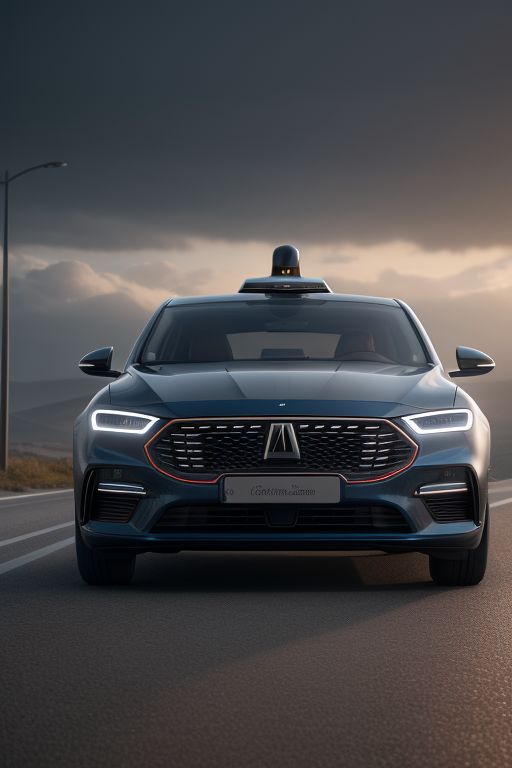Self-Driving Cars-Exciting or Terrifying?
Are Self-Driving Cars Safer? Exploring the Present and Future
Self-driving cars, once a futuristic concept, are now becoming a reality on roads, even in Texas. With advancements in technology, the promise of safer, more efficient transportation is within reach. But are self-driving cars truly safer than their human-driven counterparts? Let’s dive into the statistics, facts, and future prospects of self-driving cars, and what to do if you’re involved in an accident with one. If you’ve been injured in an auto accident in Texas, call The Low Law Firm.
Statistics and Facts
Safety Statistics
- Accident Rates: According to the National Highway Traffic Safety Administration (NHTSA), human error is a factor in 94% of crashes. Autonomous vehicles (AVs) aim to reduce this significantly by eliminating common human errors such as distracted driving, fatigue, and impaired driving.
- Current Performance: Waymo, a leading self-driving technology company, reported that its vehicles drove over 7 million miles on public roads as of 2023 with few accidents, none of which were the vehicle’s fault. By December 2023 they had demonstrated an 85% reduction in injury causing crash rates. This translates to about 0.41 incidents per million miles for the WAYMO driver, compared to 2.78 incidents for human drivers.
- Testing and Deployment: As of 2023, multiple companies, including Tesla, Waymo, and Cruise, have logged millions of miles in both test and real-world conditions. These extensive test miles provide valuable data for improving AV safety.
Technological Advantages
- Sensors and Algorithms: Self-driving cars are equipped with advanced sensors, cameras, radar, and LIDAR systems that provide a 360-degree view of the surroundings. These sensors work together with sophisticated algorithms to detect and respond to potential hazards faster than a human can.
- Consistent Performance: Unlike human drivers, AVs do not get tired, distracted, or impaired. They follow traffic rules consistently and maintain optimal driving behavior at all times.
The Future of Self-Driving Cars
The future of self-driving cars holds immense potential for improving road safety and transforming transportation:
- Reduced Traffic Accidents: As self-driving technology matures, the goal is to significantly reduce traffic accidents, injuries, and fatalities.
- Enhanced Mobility: AVs can provide mobility solutions for the elderly, disabled, and those unable to drive, improving their independence and quality of life.
- Traffic Efficiency: Self-driving cars can communicate with each other and with traffic infrastructure to optimize traffic flow, reduce congestion, and lower emissions.
What to Do If You’re Involved in an Accident with a Self-Driving Car
- Ensure Safety: First and foremost, ensure the safety of all involved parties. Move to a safe location if possible and check for injuries.
- Call Emergency Services: Contact the police and, if necessary, medical services. It’s essential to have an official report of the accident.
- Document the Scene: Take photos of the accident scene, including damage to vehicles, road conditions, and any relevant traffic signs. Collect contact information from witnesses.
- Exchange Information: Exchange contact and insurance information with the other party. If the AV is operating under a company’s fleet, get the company’s contact details as well.
- Report to Insurance: Notify your insurance company about the accident as soon as possible. Provide them with all the necessary information and documentation.
FAQ Section
Q: Are self-driving cars completely autonomous? A: Currently, no car on the market is fully autonomous (Level 5). Most self-driving systems are at Level 2 or 3, requiring human supervision. Companies are actively working towards higher levels of autonomy.
Q: Can self-driving cars make ethical decisions? A: Self-driving cars rely on algorithms to make decisions. Ethical decision-making in split-second scenarios is a complex challenge that researchers are addressing through extensive testing and ethical programming.
Q: How do self-driving cars handle bad weather? A: Adverse weather conditions like heavy rain, snow, or fog can affect sensor performance. Companies are continuously improving sensor technology and algorithms to handle such conditions better, but limitations still exist.
Q: Who is liable in an accident involving a self-driving car? A: Liability in accidents involving self-driving cars can be complex and may depend on factors such as the level of autonomy, fault in the accident, and local laws. Generally, if the vehicle was in autonomous mode, the manufacturer or technology provider might bear some responsibility.
Q: Are self-driving cars hackable? A: Cybersecurity is a significant concern for self-driving cars. Manufacturers implement robust security measures to protect against hacking, but as with any technology, risks remain. Ongoing advancements in cybersecurity aim to mitigate these risks.
Self-driving cars hold great promise for enhancing road safety and transforming the future of transportation. However, they are not yet perfect. While their potential to reduce accidents and improve mobility is substantial, vigilance to safety is a necessity. As technology continues to evolve, the dream of safer roads with self-driving cars is becoming a reality. In the meantime, staying informed and prepared can help ensure safety and proper handling in the event of an accident involving a self-driving vehicle. At The Low Law Firm we have and will continue to invest a great deal of time and research into this technology as it evolves. We will continue to fight companies who value profits and advancement over safety of Texans. If you or a loved one is injured due to these self driving vehicles or any of the autonomous advancements in vehicles, call The Low Law Firm for a free consultation at (325) 455-1889.

